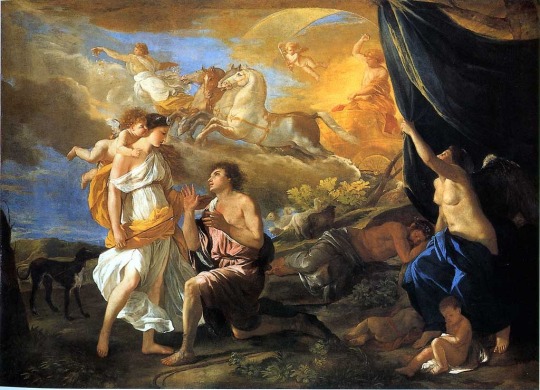#NICOLA AGELESS GODDESS!
Text
UMMMM BRB GONNA CRY FOR 3 HOURS STRAIGHT AT THIS NOW OH MY GODDDDDDD





LOOK AT THEM OMFFFFGGGGGGGGGFKFKFKF
#doctor who#classic who#sixth doctor#peri brown#LOOK AT COLINNNNNN MYYY BAAABBYY#NICOLA AGELESS GODDESS!#LITERALLY JUST GONNA CRY FOREVER#SIXPERI 4 EVA!!!!! THE AGENDA IS REAL
143 notes
·
View notes
Photo

In Greek mythology, Endymion was a handsome shepherd that attracted the eye and love of Selene, the goddess of the moon. She was madly in love with him, even though she could only appear to him at night. But Selene couldn't stand that her mortal lover would one day wither and die, so she asked Zeus, king of the gods, for help, and the father of the gods agreed to grant Selene's wish: he found a way to maintain Endymion's youth and beauty forever, but this way was to plunge it into an eternal, ageless sleep. And ever since, every night Selene visits his dreaming lover, and he waits for her with an appearance identical to the one he had when she first saw him: beautifully asleep. From their union were born fifty daughters, each for a month of the Ancient Greek lunar calendar.
Nicolas Poussin painted this portrait, that everybody calls "Selene and Endymion", but a careful look will reveal to you that the goddess in the painting is not Selene, but rather Diana, the Roman goddess of the hunt and the countryside - see the arrow in her hand and the hound by her side. Poussin painted the Roman version of the tale, in which Diana replaced Selene as the goddess of the moon and the lover of Endymion. Hence why some title this painting "Diana and Endymion".
Interestingly, while most painters illustrating this myth choose the theme of "sleeping Endymion", "Selene looking at the sleeping Endymion" or "Selene longing after Endymion asleep", Nicolas Poussin decided to depict a very different part of the myth: the painful but inevitable separation of the lovers when morning comes. Endymion is here on his knees, begging Diana/Selene to stay, but the Night goddess on the right (Nyx) pulls away the dark veil of night, and in the background the sun-god (Phoebus) arrives on his fiery chariot.
22 notes
·
View notes